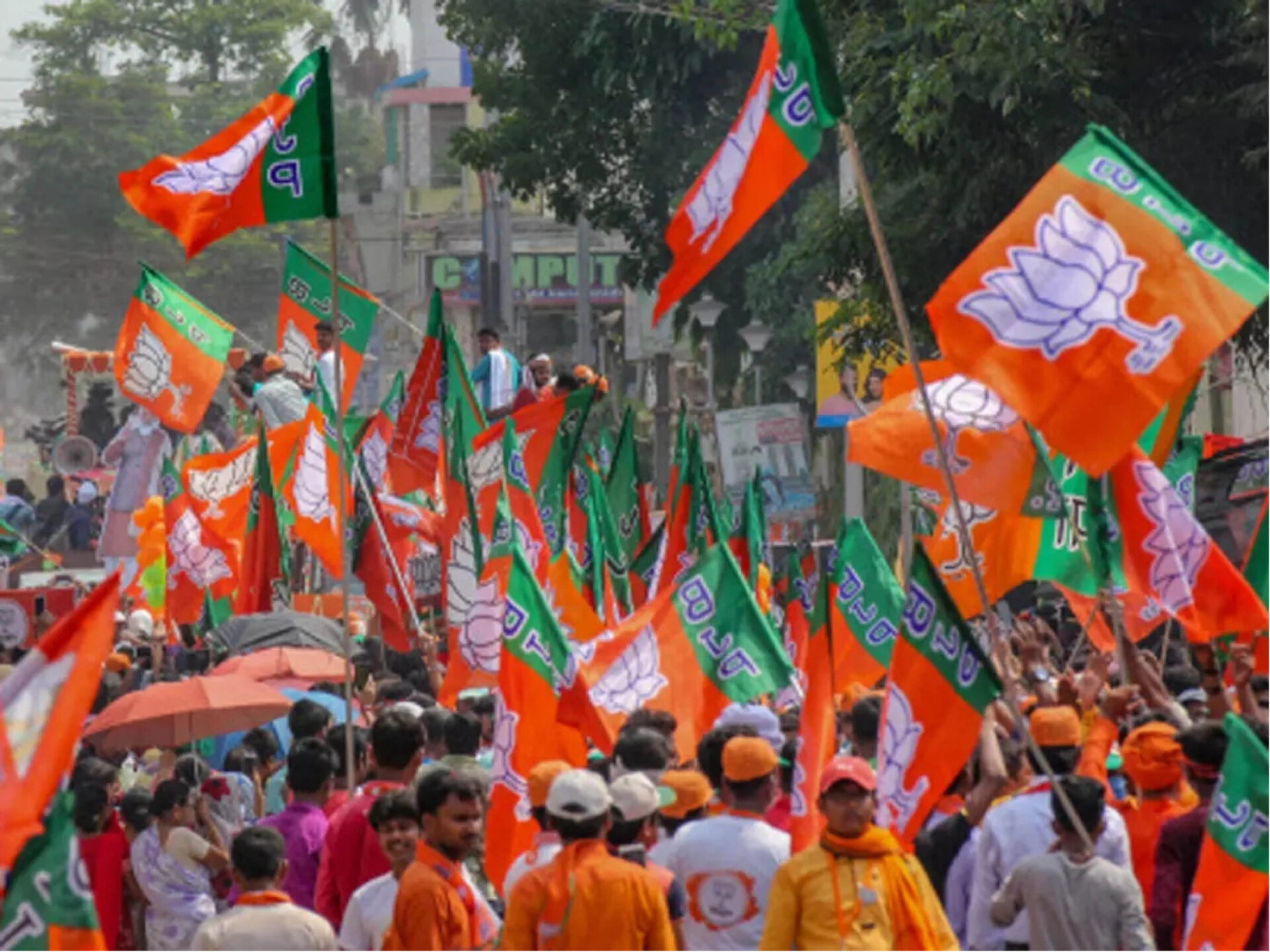NEW DELHI: BJP has contested the 2024 general elections more or less with the same number of alliance partners that it had in 2019.
Contrary to public perception and reports, the BJP has contested the 2024 general elections more or less with the same number of alliance partners that it had in the 2019 elections and has roughly given the same number of seats for its allies that it had in the last general elections.
In this election, six phases of which are already over and only one remains, the National Democratic Alliance, the umbrella under which the BJP has brought its allies together, has 24 parties including the BJP. While the BJP itself is contesting on 441 seats, the alliance partners are contesting on 98 seats. Apart from this the NDA has extended support to former Tamil Nadu Chief Minister O. Panneerselvam who is contesting as an Independent from Ramanathapuram Lok Sabha constituency.
Of the remaining three seats of the total 543 seats, the NDA is not contesting in Baramulla, Srinagar and Anantnag-Rajouri of Jammu and Kashmir.
In the 2019 polls, the NDA constituted 21 parties and one independent candidate. In that election, BJP had contested on 437 seats, leaving the rest 106 to the rest.
In the 2014 elections, the NDA had 24 members. The BJP had at the time contested on 425 seats while leaving 117 seats for its alliance partners.
In comparison, in the 2009 elections, it had the support of only eight parties and two independents. The BJP under the leadership of veteran leader Lal Krishna Advani, who was the Prime ministerial candidate, contested on 433 seats. The alliance partners had contested in 88 seats, with the NDA in total contesting 521 seats.
In the 2004 elections, BJP had contested with 12 other partners, with the BJP contesting on 364 seats while the allies contested on 179 seats.
The above trend regarding the ongoing and the past two elections (2014, 2019 and 2024) indicates that unlike the perception and reports that the BJP, in the runup to the 2024 polls, was concerned about the drop in its popularity and hence was “ally-shopping” to protect itself from electoral losses, it has more or less decided to go with the same allies that it had contested with in the last two elections.
The number also indicates that with every election, the BJP is increasing its footprints across India and contesting more and more seats on its own symbol. From 2014 to 2024, it has increased the number of seats that it contested by 16. This trend is likely to continue in the coming elections with BJP working to emerge as the number one party in Bihar and the southern states, especially Kerala and Tamil Nadu.
In this election, the “largest” of its ally is the Telugu Desam Party which is contesting on 17 seats, followed by Janata Dal United in Bihar (16) and Shiv Sena (Eknath Shinde faction) that is fighting on 15 seats and Pattali Makkal Katchi (Tamil Nadu) that is contesting on 10 seats. The remaining allies are contesting on single digit seats, with 17 parties contesting on 3 or fewer than that. Nine parties are contesting only one seat each.
In 2019 its largest allies were Shiv Sena (which was united at the time) on 23 seats, All India Anna Dravida Munnetra Kazhagam 20 seats, JDU 17 seats and Shiromani Akali Dal 10 seats. The rest were limited to single digits.
In 2014, the largest alliance partner of the BJP was TDP that contested on 30 seats, followed by Shiv Sena 20 seats, Desiya Murpokku Dravida Kazhagam 14 and Shiromani Akali Dal 10 seats.

